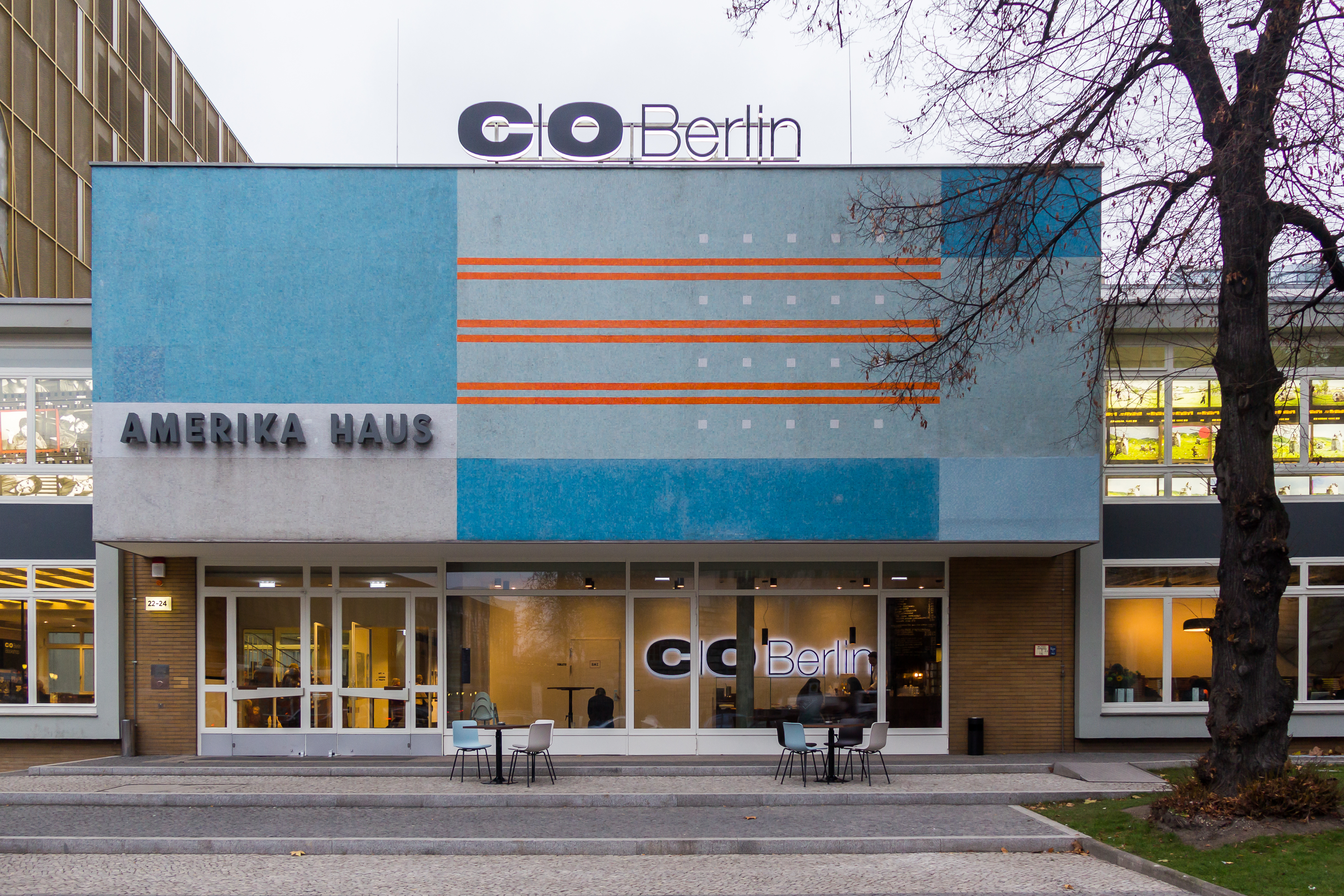Berlin has many Wonderful Smaller Art Museums
 |
| The Topography of Terror |
While Museum Island is home to the collection of Berlin’s
Stadtmuseum, which covers the history of art from ancient times to the start of
the 20th century, it is not the only place to see good art. But if
your interests go into the 20th and 21st centuries, you
will have to leave the Mitte and venture out into other parts of Berlin.
Kurfürstendam
Southwest of The Tiergarten, near the Zoological Garden is
the Kurfürstendam neighborhood, home to several excellent museums. I wrote
about the Käthe Kollwitz Museum in an earlier blog
post. Kollwitz was a German artist during the first half of the
1900’s whose work focused on the struggles of women, children and workers
against oppression.
Nearby is the Amerika Haus-C/O Berlin.
Amerika Haus was built in 1946 by the United States Military Command to house a
library of American books at a time when Berlin’s cultural resources had not
yet recovered from World War II. During the Cold War it was maintained by the
United States government as an “American Reading Room” and a place for
exhibitions, performances and conferences in the divided Berlin. In 2006, the
United States embassy moved to its current home near the Brandenburg Gate, and,
with the Soviet Union no longer in existence, the building was turned over to
the city of Berlin. It sat empty until 2014, when the C/O Berlin
foundation moved in and converted it into an exhibition space for photography.
I visited the Amerika Haus because, while returning from the
Käthe Kollwitz Museum,
I saw posters advertising its exhibit celebrating the centennial
of photographer Irving Penn’s (1917-2009) birth. Irving Penn (actor
Sean Penn’s uncle) was one of Vogue Magazine’s primary photographers. He worked
for the magazine starting in the 1940’s, and he was quickly given
responsibility for shooting many of the portraits of celebrities and artists
who were featured each month. On technique that intrigued me was his use of
false walls. He would place his subject in between two walls that were placed
close together. This tight space seemed to bring out a more personal side of
the people Penn was photographing.
 |
| Four versions of the same negative |
 |
| Gertrude Stein |
Kreuzberg
| By Foto Christoph Rehbach (Berlinische Galerie), via Wikimedia Commons |
Another neighborhood with a wealth of museums and galleries
is Kreuzberg. This area
was part of East Berlin, and after the wall came down,
it became home to many artists. I came to Kreuzberg to visit the Berlinishe
Galerie, one of Berlin’s best modern and contemporary art museums. Its
permanent collection is represented in its exhibition – Art in Berlin 1880-1980. Filling the entire 2nd floor of
the building, this is a comprehensive exhibit that presents paintings,
sculpture and photographs produced in Berlin during that period.  |
| Warming Hall in Berlin by Jens Birkholm |
 |
| Two Girls at the Window by Georg Schrimpf |
The first floor houses to the museum’s temporary shows. When I visited, there were
 |
| His Majesty, The Wheel |
 |
| Bull's Head on Red Ground |
Potsdamer Platz
There are several small museums near Potsdamer Platz. The two
that I visited were right next to each other along Niederkirchnerstrasse. One
is the Topography
of Terror. It is built on the site of Gestapo Headquarters, which
was destroyed during World War II. Wile I skipped the indoor museum, its
outdoor exhibition fascinated me. In 1987 the basement of the building was
excavated. These were the cells the Gestapo held prisoners in and used for
torture. Today you can walk along a path through the ruins of these cells and
observe a photographic history of the horrors of the Gestapo and the SS. While
this path passes below street level, up above is the history of the Berlin
Wall. The Wall ran along Niederkirchnerstrasse, and here, the section was left
standing, so you can observe the slabs of concrete and the decorations that
were added by local artists after 1989.
 |
| Jensen via Wikimedia Commons |
Next to this trip through the horrors of history is the Martin-Gropius-Bau,
a museum dedicated to contemporary art and photography. This Neo-Renaissance
building opened in 1886 as a museum of applied art. It was heavily damaged in during
World War II and did not reopen until reconstruction finished in 1999. The
exterior has been completely restored to its pre-war splendor. Inside there are
modern galleries, built around its original two-story tall exhibition hall. During
my visit there was an exhibit of films made by Cuban-American artist Ana Mendieta
(1948-1984). She is best known for making female body shapes on the ground in
nature, either digging them out, or by using natural objects.
 |
| Detail from exterior of Martin-Gropius-Bau |
When you visit Berlin make sure that you look beyond Museum Island.
There are a lot of excellent museums that present a wide variety artists and
art work. Get out and enjoy it.
Getting There:
Amerika Haus – Hardenbergstrasse 22. This is near the Bahnhof
Zoologisher Garten train station. It is served by many subway and commuter rail
lines. Admission €10/€6.
Berlinishe Galerie – Alte Jacobstrasse 124-128. The closest
subway stop is Kochstrasse station on the U6 subway. Admission is €8.
Topography of Terror and Martin-Gropius-Bau are near the
Potsdamer Platz train station, which is served by several subway and commuter
trains. The Topography of Terror is free. Martin-Gropius-Bau charges a separate
admission for each exhibition and has a combined admission available.





Comments
Post a Comment